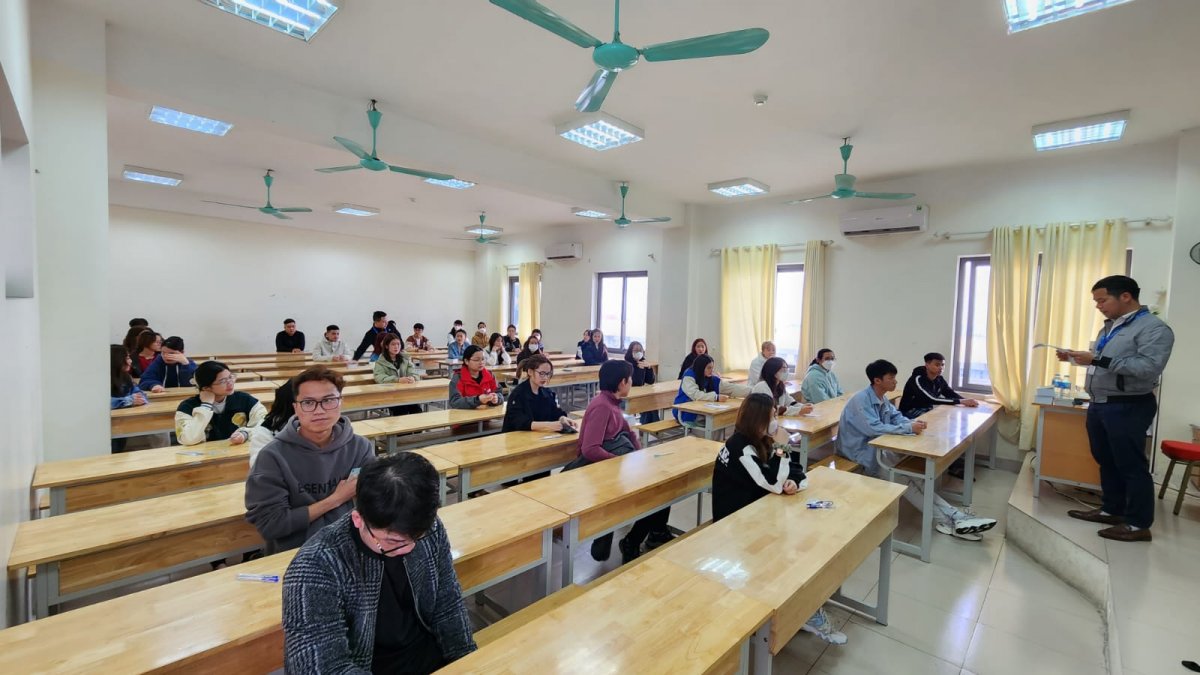Why take a language exam?
2024
Jun
24
After two years of language exam amnesty, last year the Hungarian Parliament approved an amendment to the Higher Education Act to remove the statutory language exam requirements for awarding degrees. Why is it worth taking a language exam these days? We spoke to Réka Werner, Head of the International ECL Examination Centre.
Why do you think knowing a foreign language is important? Why take a language exam?
In the majority of cases, a language certificate is no longer required to obtain a degree in Hungary, but according to our information, all higher education institutions give extra points in their admissions process to applicants who have language certificates. The number of extra points usually depends on the foreign language and the level of the exam. Up to 100 extra points can be obtained with an advanced level (C1) language exam. The vast majority of our candidates in Hungary are high school students who increase their chances of going on to higher education by attaining language certificates.

In addition, having a language exam and knowing a foreign language provide a competitive advantage for students and young workers. The knowledge of a minimum of one foreign language is also essential for many jobs in Hungary. Many jobs are also available online and foreign language skills are usually required. Of course, opinions differ as to whether language skills are sufficient or whether a certificate is required. We are likely to declare our language skills in our CVs and be required to demonstrate our proficiency during job interviews.

Would you introduce the ECL exam in a few words? How is it different from the other Hungarian language exams?
The ECL examination centre has been operating at the University of Pécs for 25 years. A few weeks ago, we celebrated our 25th anniversary of being in operation.
The ECL language exam is based in Pécs, Hungary. Its special feature is that it is an examination system operating in the Hungarian context, accredited by the Educational Authority Accreditation Centre for Foreign Language Examinations. At the same time, it is also
an internationally recognised language examination,
as the Hungarian and German language exams also have international accreditation. This means that ECL language certificates in German are accepted by German embassies around the world for employment and visa purposes. Currently, there are no other Hungarian-based examination centres that offer this kind of international accreditation.
 There are around 200 ECL examination centres worldwide, correct?
There are around 200 ECL examination centres worldwide, correct?
We currently have exactly 169 active examination sites around the world and ECL exams are available in 38 countries. We have exam sites in Europe, Asia, Africa and Australia. Our biggest markets are Africa and Asia. In the recent June exam period, an ECL partner in Cameroon hosted 1,100 candidates in one exam site, which is an extremely high number! By way of comparison, there are currently 21 accredited examination systems in Hungary.
The total number of German language examinations per year organised by all the Hungarian examination centres is approximately equal to the number of candidates per examination period at ECL exam sites abroad.
What languages are tested in the ECL examination system?
We provide language exams in 15 languages in total. The English, Hungarian and German exams are accredited in Hungary. Examinations in other languages (Italian, French, Polish, Slovak, Spanish, Serbian, Romanian, Bulgarian, Russian, Czech, Croatian and Hebrew) can be nostrificated. English is the language that most candidates register for in Hungary, while German is the language selected for 95% of candidates abroad.

Can international students take exams in any of the 15 languages in Hungary?
Of course. Our language exam is monolingual. This means that there is no translation task, so there is no obstacle for a foreign student to take a language exam in any language because a language test measures knowledge in the target language. The ECL exam is open to anyone over the age of 14 in the calendar year of application.
 Why do you think one should choose to take this exam?
Why do you think one should choose to take this exam?
In all cases, the aim of our candidates is to pass the language exam. For this reason, language learners always ask which is the easiest exam to take. However, the different language examination systems ideally measure the same level of language proficiency with tasks of similar difficulty. The ECL language exam, like most language exams, measures four skills: reading, writing, listening and speaking.
If I had to point out something that makes our exam attractive, it would be its clear structure.
For each of the four skills, two different tasks are used to measure candidates' language proficiency, with the same maximum score for each skill. To pass the exam, candidates must achieve a minimum of 40% in each skill and an average of 60%. If they score slightly below 60% in one skill, they can compensate by achieving a higher score in another. Another special feature of our language exam is that candidates can choose who they would like to partner with for the oral exam section.
 In April, a questionnaire survey was distributed to candidates about their experiences with the ECL speaking exams. Can you share the results?
In April, a questionnaire survey was distributed to candidates about their experiences with the ECL speaking exams. Can you share the results?
The research data has not been fully analysed, so I can only give you a brief overview. The focus of the questionnaire was on the paired oral exams. Based on the test takers' responses, we can see that the majority of test takers had some anxiety about not knowing in advance with whom they would be paired. At the same time, almost half of the candidates said that
it is less stressful to take a paired exam because they talk with another candidate rather than an examiner. As I mentioned above, candidates can choose who they would like to pair up with when they apply, so there is no reason why they cannot prepare for the speaking exam together.
The results show a high level of satisfaction with the professionalism of our ECL oral examiners, with the vast majority of candidates also highlighting the positive atmosphere they experienced during speaking exams. We are naturally very pleased with these results.
We hope that candidates will continue to practise and improve their language skills after the exam. In most cases, having a language exam certificate gives candidates an advantage, but in reality the ability to effectively use language skills in real-world settings is also required in all areas of life.
- Log in to post comments
University of Pécs | Chancellery | IT Directorate | Portal group - 2020.

















